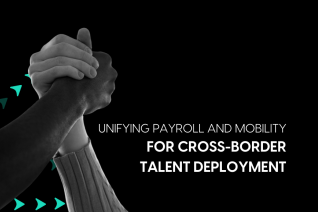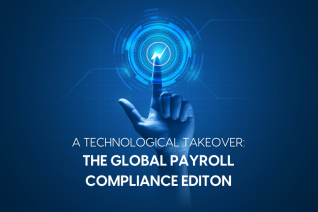Run your business seamlessly with Neeyamo as we help you go beyond borders to manage your international payroll and hire new talent in Liechtenstein.
Overview
Nestled amidst the stunning Alps, Liechtenstein is a tiny gem that packs a mighty punch. Despite its diminutive size – a mere 160 square kilometres –this principality boasts abundant job opportunities that outstrip its population of just under 40,000 citizens. This unique situation presents a golden opportunity for talented individuals from neighboring Switzerland, Austria, and Germany.
Through our Global Payroll and Employer of Record solutions, Neeyamo enables companies to hire across four countries. Our solution covers all global payroll aspects, including onboarding, tax compliance, risk management, and employee benefits administration for your Liechtenstein workforce. Unlock a rich talent pool in this economic hotspot while we handle the complexities of cross-border employment, allowing you to focus on driving business growth.
Tools And Instances
Facts And Stats
Capital
Vaduz
Currency
Swiss Franc (CHF)
Official Language
German, with Alemannic being the main dialect
Fiscal Year
1 January - 31 December
Date Format
DD/MM/YYYY
Country Calling Code
+423
Other Languages
Italian, Turkish, Portuguese, and various others
Time Zone
Central European Time Zone UTC+01:00
Global Payroll
Overview
Handling payroll for a widespread workforce can pose as a major challenge for any firm. The added complication of compliance can make things worse and drastically effect the time and efforts that can be used in other equally important aspects of an organization's development.
Over the years, Neeyamo has observed these complexities and strived to provide a global payroll solution through a single technology platform, Neeyamo Payroll.
Payroll Taxes
Payroll tax is the percentage amount retained from an employee's salary and paid to the government to invest in the welfare of the general population.
Employee Taxes
Employee Contributions:
- For old age, survivors, and disability insurance - The employee's share is 4.70%.
- Family compensation fund - There is no employee contribution to this fund.
- Unemployment insurance/supplementary unemployment insurance - The employee’s share is one-half, which is 0.5%.
- Occupational accident insurance - There is no employee contribution to this insurance.
- Occupational pension scheme (2nd pillar) - The employee’s share depends on the pension plan, with the exact percentage varying based on the plan.
Income Tax Rates
Residents:
|
Income |
Percentage |
|
Up to CHF 20,000 |
1% |
|
From CHF 20,001 to CHF 40,000 |
3% |
|
From 40,001 to CHF 70,000 |
4% |
|
From CHF 70,001 to CHF 100,000 |
5% |
|
From CHF 100,001 to CHF 130,000 |
6% |
|
From CHF 130,001 to CHF 160,000 |
6.5% |
|
From CHF 160,001 to CHF 200,000 |
7% |
|
Above CHF 200,000 |
8% |
Non-Residents:
The income tax rates for non-residents are identical to those for residents.
Employer Taxes
Employer Contributions:
- Old age, survivors, and disability insurance - The employer's share is 4.9%.
- Family compensation fund - This is fully employer-financed, with the employer's share being 1.9%.
- Unemployment insurance/supplementary unemployment insurance - The employer’s share is one-half, which is 0.5%.
- Occupational accident insurance - This is fully employer-financed, with the employer's share being approximately 0.1%.
- Occupational pension scheme (2nd pillar) - The employer’s share depends on the pension plan, usually being one-half.
Payroll Cycle
Overview
Undoubtedly, payroll is a critical aspect of any organization. The Pay cycle is a notable feature that provides a sense of accountability for an employee to be paid consistently for their work.
Frequency
In Liechtenstein, the payroll cycle typically follows a monthly payroll frequency.
13th Month Cycle
There is no statutory requirement to provide a Bonus.
Global Work
Overview
An Employer of Record service provider helps you get rid of the hassle of handling the complexities that come with setting up a new employee in remote locations. They act as legal employers, facilitate salary payments, and handle everything from health insurance, payroll taxes, and employee benefits to comply with local tax laws and regulations.
This ensures that the client company can focus on the employee’s everyday tasks safely in the knowledge that they have a cost-effective solution as they continue their global expansion.
HR Mandates and Practices
Minimum Wage
Liechtenstein does not have a government-set minimum wage. Therefore, there is no mandatory minimum rate of pay for workers in Liechtenstein. Pay rates must be agreed upon directly with the employer through collective bargaining or other means of negotiating a fair living wage.
Overtime
Overtime rules in Liechtenstein aim to protect employees' rights by limiting their work hours and providing adequate compensation. Overtime is defined as hours worked beyond the agreed-upon hours in the employment contract and must be compensated with leisure time or a minimum 25% bonus.
The maximum weekly working hours vary depending on the employee's category, with industrial enterprises, office personnel, and technical employees having 45 hours per week, young persons (aged 15-18) having 40 hours, and other employees having 48 hours. Special cases may allow overtime hours to exceed the maximum hours, but authorization from authorities is required. Employers must adjust their working hours accordingly for on-call services and shift work.
Data Retention Policy
In Liechtenstein, the data protection laws are governed by the Data Protection Act (DSG) and the General Data Protection Regulation (GDPR), as it is a member of the European Economic Area (EEA).
Regarding employee data retention, it is important to comply with the regulations set forth in the DSG and GDPR. Generally, the personal data of employees should be kept no longer than necessary for the purpose for which it was collected.
Employers in Liechtenstein should establish clear policies on data retention and deletion to ensure compliance with data protection laws. It is advisable to regularly review and update these policies to align with any changes in legislation.
Hiring and Onboarding Requirements
Hiring
When hiring in Liechtenstein, companies often prefer employees who are adaptable and can work within the specific legal and taxation frameworks of the country. Given the nature of Liechtenstein's economy, which is heavily influenced by the financial sector, employees in finance, banking, and related fields might be particularly attractive. However, it's important to note that the preferences can vary widely depending on the specific needs and nature of the business
Liechtenstein's tax system, for instance, includes a flat 12.5% profit tax for organizations, with resident companies having unlimited tax liability on their worldwide income, while foreign entities have limited tax liability on income from outlets and properties based in Liechtenstein. This could influence the types of employees who are hired, particularly those with expertise in areas related to financial management, tax planning, and compliance.
Onboarding
For onboarding employees in a company in Liechtenstein, the following documents and information are typically required:
- Employer Details: Personal details, registered office, or home country of the employer.
- Commencement Date of Employment: The start date of the employment, including the duration of the contract or fixed-term for contracts.
- Working Hours: Information about the expected working hours.
- Workplace Information: Details about the workplace, including the address and any specifics about the environment.
- Job Title and Description: A clear statement of the employee's job title and a description of their responsibilities and duties.
- Holidays and Leaves: Information about the company's policy on holidays, leaves, and any specific leave entitlements.
- Compensation, Bonus, and Benefits: Details about the employee's salary, bonus structure, and benefits package.
These documents are essential for setting up the employee's file and ensuring compliance with local laws and regulations.
Probation
In Liechtenstein, the probationary period is typically between 1 and 3 months. This period serves as an evaluation phase for both the employer and the employee, allowing the employer to assess the employee's performance and fit within the company and for the employee to get accustomed to the work environment and responsibilities. At the end of the probationary period, the statutory notice periods are one month in the first year of service, two months in the second, and up to and including the ninth year of service, after which the notice period is three months. The parties may freely determine the duration of the period of notice in writing, but it may not be shorter than one month, with special provisions for employees with a collective bargaining agreement.
Leave
Overview
The statutory public holidays in Liechtenstein for the year 2024 are as follows:
- January 1 - New Year's Day
- January 6 - Epiphany
- February 2 - Candlemas
- March 19 - St Joseph's Day
- April 1 - Easter Monday
- May 1 - Labour Day/May Day
- May 9 - Ascension Day
- May 19 - Whit Sunday
- May 20 - Whit Monday
- May 30 - Corpus Christi
- August 15 - Liechtenstein National Day
- September 8 - Nativity of Our Lady
- November 1 - All Saints' Day
- December 8 - Feast of the Immaculate Conception
- December 25 - Christmas Day
- December 26 - St Stephen's Day
These holidays are recognized by the Liechtenstein government and are observed nationwide. Some holidays, like Mother’s Day, are observed rather than being statutory, and others, like the March Equinox and June Solstice, are marked as seasons rather than official holidays.
Annual Leave
- After 12 months of continuous employment, employees are entitled to four weeks of annual leave.
- The specifics of annual leave entitlements are outlined in the Employment Act 1.
Maternity Leave
- Pregnant employees are entitled to maternity leave.
- The duration and benefits during maternity leave are governed by the law.
Sick Leave
- Employees who are unwell or injured can take sick leave.
- The duration and conditions for sick leave are typically determined by the employer’s policies and legal requirements.
Paternity Leave
- Fathers can take paternity leave to support their partners during childbirth and early parenting.
- The duration and conditions vary based on the employer’s policies and legal provisions.
Parental Leave
- Parental leave allows parents to care for their children.
- It includes both maternity and paternity leave.
Bereavement Leave
- Employees can take time off due to the death of a close family member.
- The duration and eligibility criteria depend on the employer’s policies.
Other types of Leave
Additional leave types may include study leave, compassionate leave, and special leave for personal reasons.
Termination
Overview
Notice Period:
Probationary Period:
Typically, the probation period lasts between 1 to 3 months. This is the initial period during which the employer evaluates the employee's performance and suitability for the role.
Termination Notice Period:
- Fixed-term Contracts: 1 to 3 months.
- Indefinite Contracts: 1 to 3 months.
Statutory Notice Periods - After the probationary period, the notice periods are structured as follows:
- First Year - 1 month
- Second Year - 2 months
- Third to Ninth Year - Up to and including the ninth year, 3 months
- Tenth Year and Beyond - 3 months
Employers and employees may freely determine the duration of the notice period in writing, but it cannot be shorter than one month. Special provisions apply to employees with a collective bargaining agreement.
Severance Pay
Severance Pay is Not Required by Law. Employers are not obligated to provide severance pay to employees upon termination of their employment contracts.
Employment Contract Provisions - However, the employment contract may include provisions for a severance payment, which could be related to noncompetition clauses, indemnification, or other terms agreed upon by both parties.
Visa
Visa Process and Permits
Work Permits and Residency Permits: To hire foreign employees, Liechtenstein employers need to apply for work permits and residency permits. These documents are essential for the foreign employee's legal stay and work authorization in Liechtenstein. The process involves detailed applications and approval by the relevant authorities.
Immigration
The visa application process in Liechtenstein is complex, and due to the limited number of residence permits available, it is advisable for employers to start the application process as early as possible. This ensures that the foreign employee can secure their residency and work permit in a timely manner.
Employee Background Checks
Legal and Background Checks
In Liechtenstein, legal background checks are conducted to ensure compliance with various laws and regulations, protect individuals and businesses, and maintain the integrity of the legal system. These checks can be categorized into several types, each serving a specific purpose. Here are the main types of legal background checks in Liechtenstein:
- Criminal Records Check: This type of check is conducted to determine if an individual has any criminal records. It's often required for employment, especially in positions that involve handling sensitive information or assets.
- Financial Background Check: This check is performed to assess the financial stability and integrity of an individual or entity. It can include checks on credit history, bankruptcy filings, and any financial misconduct. This type of check is crucial for lenders, investors, and financial institutions.
- Employment Background Check: Employers often conduct background checks on potential employees to verify their employment history, references, and to ensure they are suitable for the position. This can include checks on previous employers, performance evaluations, and any potential conflicts of interest.
- Real Estate Background Check: In the context of real estate transactions, background checks are conducted on both the buyer and the seller to ensure they are financially stable, have the right to sell or buy the property, and are not involved in any legal disputes that could affect the transaction.
- Professional Licensure Check: For professions that require licensure, such as lawyers, doctors, and engineers, a background check may be conducted to verify that the individual holds a valid license and has not been disciplined by their professional body.
- Sanctions Check: This type of check is conducted to determine if an individual or entity is subject to any international sanctions. This is particularly relevant for businesses dealing with international transactions or those involved in certain industries.
- Identity Verification: While not a background check in the traditional sense, identity verification is a critical component of many background checks. It involves confirming the identity of an individual or entity through various means, such as checking government-issued identification documents.
It's important to note that the specific requirements and procedures for conducting these checks can vary depending on the jurisdiction and the specific context in which the check is being performed. In Liechtenstein, as in many other countries, there are legal and regulatory frameworks in place to govern the conduct of background checks, ensuring they are conducted in a fair and lawful manner.
Last updated on March 11, 2024
If you have any queries or suggestions, reach out to us at irene.jones@neeyamo.com







